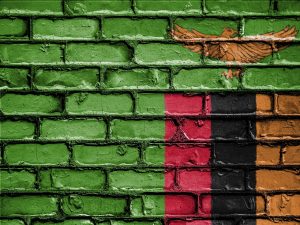What Does the Future Look Like for Zambia’s Economy?
September 3, 2023304 views0 comments
Zambia’s economy has been at the center of much change in its short 70-year history, ever since the country gained independence from Britain in the mid-20th century. At the time, Zambia was dependent on its copper mining industry. However, as the economy has changed and developed, the country now ranks highly on certain indices on the African continent: eighth in ease of doing business and eighth in global competitiveness. A promising position for a state that has had to deal with many setbacks in its short history.
Today’s Economy
The economy we see in Zambia today is one that is on the precipice of change. As mentioned, copper is at the heart of industry and makes up 60-70% of all exports. However, the government now has a clear goal to develop technology in the country, the success of which can be seen in the country’s growing gambling sector. Take for example the Zambia casino sector, where casinos can now offer online games ranging from slots to cards with instant wins to an increasingly connected society. It’s said that 90% of the population has access to smartphones, which will not only benefit the gambling sector but others as well.
 Overseas Investment
Overseas Investment
Another aspect that will help develop technology is foreign direct investment. The country took giant strides in this regard in 2022. President Xi of China welcomed Zambian dignitaries to Beijing and signed a historic deal for the two countries. This deal secured the promise that China would construct a smartphone manufacturing plant in the country while also promising more investment in several other sectors.
Read Also:
What does the future hold?
With a deal like this, the future of the country’s economy looks promising. The government no longer wants to focus on primary industries and instead is embracing technology, a tactic seen in the success of other countries. Take, for example, Ireland or Portugal – both countries had the help of grants from the European Union when they joined the community in 1973 and have since changed from primary to tertiary economies. Both also took bold steps to transform their economies, such as lower corporate tax rates or tax breaks for cryptocurrencies, and now boast developed economies.
 This may seem a long way away for a country like Zambia, but trade agreements such as those with China can be the beginning of something new for the country. The African Development Bank predicts some small improvements in the short term, too. Inflation is projected to decline, coupled with some small growth in the national GDP. It may not transform the country, but there are green shoots of growth.
This may seem a long way away for a country like Zambia, but trade agreements such as those with China can be the beginning of something new for the country. The African Development Bank predicts some small improvements in the short term, too. Inflation is projected to decline, coupled with some small growth in the national GDP. It may not transform the country, but there are green shoots of growth.
The next few years promise to be exciting not just for Zambia but for the African continent as a whole. While the country still holds a lot of debt, it has been able to restructure these debt deals to at least try and deliver some stability financially for the country. Whether this, coupled with foreign investment, changes the country for the better will be seen in the next few decades.
